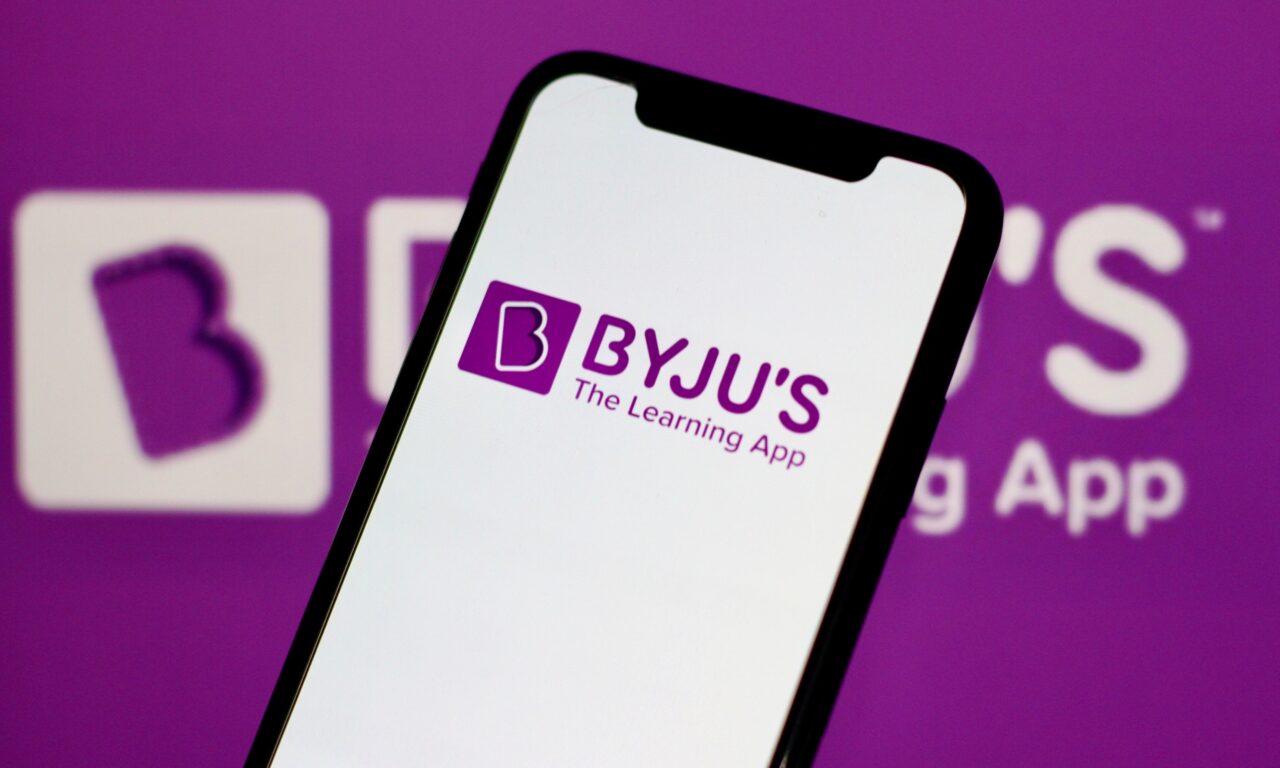BYJU’S faces insolvency proceedings by Cricket India for unpaid sponsorship fees

Indian EdTech giant BYJU’S is facing an insolvency application from the Board of Control for Cricket in India (BCCI) for an estimated £15 million in unpaid sponsorship fees. This news highlights a significant fall for the company following its previous high-profile sponsorships, which included a partnership with the FIFA World Cup 2022 and its brand ambassador, Lionel Messi.
The Rise of BYJU’S Through Sponsorships
Founded in 2011, BYJU’S quickly ascended to prominence in the EdTech sector, leveraging technology to provide personalised learning experiences. Within a decade, the company expanded its reach globally, boasting millions of learners across various countries and a valuation of $22 billion. A significant part of BYJU’S strategy to achieve rapid growth involved high-profile sponsorship deals.
- FIFA World Cup 2022:
In 2022, BYJU’S launched itself onto the global stage by becoming an official sponsor of the FIFA World Cup in Qatar. This partnership not only included sponsorship rights but also a collaboration with global football icon Lionel Messi as a brand ambassador. This move was aimed at connecting with the passionate global football fanbase, especially in South America, and positioning BYJU’S as a household name in education technology.
- Indian Premier League (IPL):
BYJU’S has also been a significant player in cricket sponsorship, mainly through its association with the IPL. The company was the title sponsor for Star Sports’ Cricket Live during the IPL season, capitalising on the massive viewership of cricket in India to promote the brand in its home country.
- BCCI Sponsorship:
BYJU’S sponsorship of the Indian national cricket team further solidified its presence in the world of sports. The company’s logo featured prominently on team jerseys, linking its brand with one of the most beloved sports teams in India.
- Brand Ambassadorships:
In addition to a high profile campaign with global superstar Lionel Messi, BYJU’S also partnered with Olympic medalists Neeraj Chopra and PV Sindhu, who became brand ambassadors for BYJU’S Early Learn app. This partnership aimed to promote the integration of sports and education among young learners (BYJU’S).
The Dual Edge of Sponsorship
Sponsorships are a powerful tool for brand awareness. They provide companies, especially new entrants like BYJU’S, with a platform to reach vast audiences and associate with globally recognised events and figures. However, they can also present a skewed image of the company’s actual stability and operational efficiency.
BYJU’S, by associating with prestigious events like the FIFA World Cup and prominent figures like Messi, positioned itself alongside well-established brands like Visa, Coca-Cola, and Qatar Airways. This association created a perception of BYJU’S as a global, well-run organisation. However, in the same year of the Qatar World Cup it sponsored the company was already defaulting on some of its loans. Despite the brand visibility and recognition achieved, the company struggled with financial management and sustainability.
The Risks of High-Stakes Sponsorships
The collapse of BYJU’S underscores a broader lesson about the risks associated with high-stakes sponsorships. While these deals can generate significant brand awareness, they also require substantial financial commitments that can strain a company’s resources, especially if the anticipated business growth does not materialise.
BYJU’S is not alone in this regard. The UK-based car retailer Cazoo recently faced financial difficulties, partly due to its heavy investment in sports sponsorships (read more on that story here). For new brands, these sponsorships represent a big bet on the potential to convert brand awareness into long-term business growth. In the case of BYJU’S, this bet appears to have been placed on the company's forecast valuation rather than confirmed turnover.
Shaky Foundations
BYJU’S meteoric rise through strategic sponsorships highlights both the potential and the pitfalls of such marketing strategies. While the company achieved global brand recognition in a short span, the financial burden of these sponsorships, coupled with internal management issues and significant debt, has led to its current predicament. This serves as a cautionary tale for other emerging brands considering similar strategies: while sponsorships can catapult a brand to global fame, they must be balanced with stable financial foundations in order to be successful.









